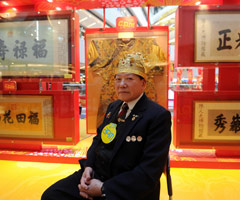China Overtakes Britain to Become the World’s Second Biggest Art Market
If there is still any skepticism about the continuing rise of the Chinese art market, one dramatic new indicator might put that doubt to rest: according to a new study by the British Art Market Federation, China has outpaced the United Kingdom to become the second-largest art market in the world. With Chinese auction and gallery sales constituting nearly a quarter of the world’s art commerce, at 23 percent or $8.3 billion, the country now follows the United States (at 34 percent) while Britain lags at 22 percent.
The statistics, reported by Bloomberg, come at a time when both Christie’s and Sotheby’s credit the Asian market for their strong resurgences — with Christie’s claiming 2010 as the best year in its history — and when Chinese art routines breaks new records at auction, most recently with the $85 million sale of a Qianlong-era porcelain vase in November at England’s Bainsbridge Auction House. The Chinese art industry is still evolving as well, with much of the country’s commerce taking place in Hong Kong, where comparatively relaxed tax and export policies allow international sellers to thrive, while the more closed-off mainland is dominated by the state-overseen Poly and Guardian auction houses.
At the moment, the Chinese market is dominated by traditional and imperial-era art — with the government providing strong support for collectors who make patriotic purchases at home and abroad — though categories like fine wine, contemporary art, and even Western art continue to grow.
British sales, meanwhile, have dropped from 27 percent to 22 percent since 2006. A levy exacted by the European Union entitling living artists to a portion of the resale value of their work poses a particular challenge to Britain’s market share. “The EU alone applies this levy,” according to British Art Market Federation chairman Anthony Browne. “It does not exist in China, the U.S. or Switzerland, our main global competitors.”

